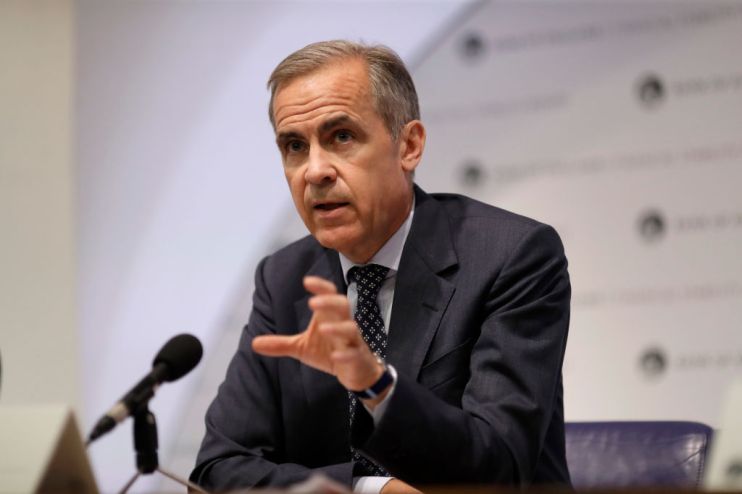Coronavirus: Mark Carney warns of ‘large economic shock’

Bank of England governor Mark Carney has said the economic shock from coronavirus “could prove large” but sought to reassure the public that it will “ultimately be temporary”.
The outgoing governor told parliament today that the central banks and governments around the world are working on a “powerful” response to the crisis that will likely result in a mix of extra spending and interest rate cuts.
Carney told the Treasury Select Committee (TSC) of MPs that Threadneedle Street in particular will “take all necessary steps to support the UK economy and financial system, consistent with its statutory responsibilities”.
Stock markets, which plunged last week on investor fears over the economic impact of the virus, rose this morning as traders wagered that central banks around the world will cut rates.
Coronavirus originated in China in December. It has since spread to more than 60 countries and killed more than 3,000 people, the majority in China.
The OECD yesterday said that a worst-case scenario could halve global growth as demand slumped and supply-chains were massively disrupted.
Yet Carney sought to reassure the public that the economic impact would not be as bad as the 2008 financial crisis.
“The 2007-2008 crisis caused some lasting scarring effects on the economy,” he said. “The prospect with this situation is that we will have disruption not destruction.”
Powerful response from governments
Carney said extra government spending and monetary stimulus from central banks was to be expected.
“Across jurisdictions there will some difference in the exact form of those measures and the exact timing, but the response will share a common goal which is to achieve this bridging, and support the economy,” he said.
The governor, who will step down and hand over to Andrew Bailey on 16 March, said he did not “want to bind the hands of the committee in terms of any specific timing” on interest rate changes. Traders now think there is a 63 per cent chance the BoE will cut rates at its next meeting on 26 March.
Carney’s interview with MPs came as the government laid out its plans to tackle the virus.
Among the measures that could be deployed once the outbreak is deemed to be at its peak are closing schools, encouraging greater home-working, discouraging people from using public transport like the Tube, and reducing the number of large-scale gatherings.
The G7 group of major economies will release a statement on tackling coronavirus at midday. Reuters reported that the countries will stop short of calling directly for government spending and interest rate cuts.